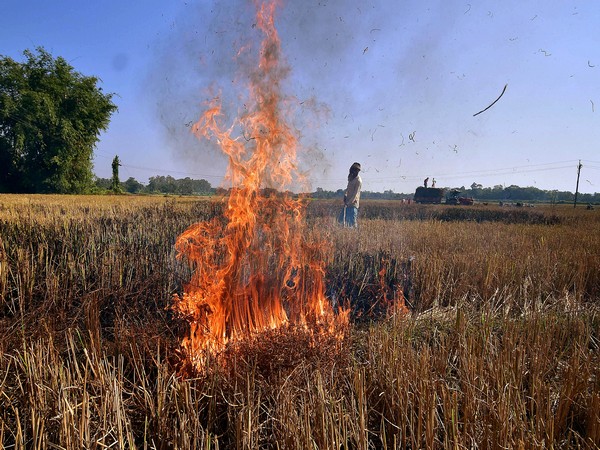With the onset of the stubble burning season, the Commission for Air Quality Management (CAQM) has deployed “flying squads” in several districts of Haryana and Punjab to monitor incidents of paddy stubble burning.
The flying squads will assess the ground-level situation and report to the Commission and the Central Pollution Control Board (CPCB) on a daily basis, including the steps taken to prevent further incidents of stubble burning in their allocated districts, the Ministry of Environment stated.
This announcement comes days after the Supreme Court criticized the CAQM for failing to take concrete steps to curb air pollution in the National Capital Region (NCR), accusing the Commission of acting as a “silent spectator.” CAQM serves as the pollution watchdog for Delhi and its adjoining areas.
Recent data from Punjab and Haryana over the past week show a spike in stubble burning compared to last year, raising alarms as yet another winter approaches in Delhi.
In a recent statement, the Ministry of Environment said the CPCB’s flying squads, assisting the CAQM, have been deployed to identified hotspot districts in Punjab and Haryana from October 1, 2024, to November 30, 2024, where paddy stubble burning incidents are typically higher.
The flying squads have been deployed in 16 districts of Punjab and 10 districts of Haryana. “The flying squads will closely coordinate with the concerned authorities at the district level, including officers appointed by the respective state governments,” the statement said.
The 16 districts of Punjab where flying squads have been deployed are Amritsar, Barnala, Bathinda, Faridkot, Fatehgarh Sahib, Fazilka, Firozpur, Jalandhar, Kapurthala, Ludhiana, Mansa, Moga, Muktsar, Patiala, Sangrur, and Tarn Taran. The 10 districts of Haryana where the squads have been deployed are Ambala, Fatehabad, Hisar, Jind, Kaithal, Karnal, Kurukshetra, Sirsa, Sonipat, and Yamunanagar.
The flying squads will assess the situation on the ground in close coordination with the concerned authorities and report to the Commission and CPCB on a daily basis, including the measures taken to prevent further stubble burning in their respective districts, according to the statement.
Moreover, the CAQM will soon establish a “Paddy Stubble Management” cell in Mohali/Chandigarh during the paddy harvesting season. This cell will closely coordinate with the Agriculture Department and other relevant agencies in the state governments of Punjab and Haryana, as well as the flying squads stationed in various districts of these two states.
Stubble burning has become a pressing concern in Delhi as winter approaches, trapping pollutants and leading to hazardous air quality and thick smog. The burning of crop residue in neighboring states significantly worsens the pollution, posing severe health risks to residents.














